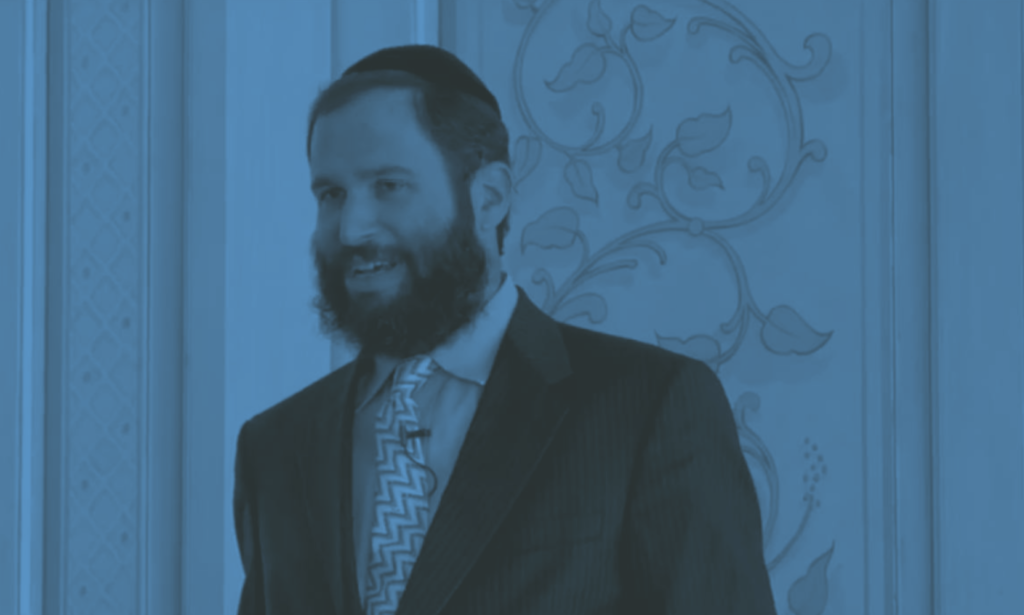
Part Two of Contributing Editor Bob Jones’ conversation with Rabbi Moshe Scheiner of the Palm Beach Synagogue in Florida.
In this second part of our conversation, Rabbi Scheiner explores fear as the basis for anger, envy, and hatred.
Bob Jones: On Thursday, The House of Representatives overwhelmingly passed a resolution condemning “hateful expressions of intolerance.” This resolution was originally designed to condemn anti-Semitism but expanded to include all who are victimized by bigotry. Though I applaud the effort, it seems to have watered down the initial intent to singularly call out and condemn anti-Semitism.
Rabbi Scheiner: Yes. I couldn't agree with you more. I think they lacked the courage to do the right thing, and for political purposes they chose to water it down and not to name the person they were really responding to, and identify what the issue is.

You know, one of the reasons behind the anti-Semitism, or for that matter all hatred, is envy. Usually when people hate other people there's very often an element of envy involved which creates a sense of insecurity in the person whose envy is of another person, and therefore chooses to hate the person. And surely that's true with anti-Semitism directed at us Jews, but in many other forms of interpersonal relationships, the hatred and the anger comes from a sense of envy.
What we have to learn is that there is negative envy and positive envy. The negative envy is when you envy someone's material possessions like the Tenth Commandment: ‘Do not covet your neighbors’ material things’…his wife, his house, his donkey, whatever it may be…and to translate that into today's modern terms whatever the material thing is.
And there's no question that a lot of anti-Semitism comes from the fact that Jewish people obviously have outlived all their enemies despite countless attempts to destroy us.
There's something about the Jewish people and their resilience and their perseverance and their connection to their heritage to God.
And instead of hating the Jews for that success, for that ability to overcome so many powers of nations, of tyranny, of oppression, of persecution, holocaust, programs, inquisitions…I mean you name it. It's an opportunity to those who are hating to say, ‘What could the Jewish people teach us? What could they share with us? What wisdom do they have? What knowledge? What experience?
What is it that makes them the way they are?’ And I would say that's true in any envy in interpersonal relationships. Translate envy into something positive rather than turning to hate.
Use it to love the person to say thank you for being an inspiration for me because we all are influenced by others for better or for worse. And so when we encounter people that are good, that rubs off on us.
We have a big holiday coming up in less than two weeks called Purim. It is a story that happened some two and a half thousand years ago. It's a story about Haman and you would think; okay that was two and a half thousand years ago we were in a primitive world, but today we're sophisticated, we're advanced, we're knowledgeable, we're educated. But, we have Hitler who comes along in 1930's and tries to do what Haman did two and a half thousand years ago.

And today we see again nations like Iran. So the story of the hate and enmity towards Jews, and the desire to destroy them continues. The Jews didn't do anything to attack Haman. They didn't do anything to attack Hitler, and didn't do anything to harm Iran. All these three instances are baseless hatred. It's not a hatred I could understand…that someone's threatening you. You may hate them because they're trying to harm you. But Jews never try to harm the King of Persia, they never try to harm Germany. They were both citizens and contributing to the society. And surely Israel has never tried to do anything to harm Iran but you just see this irrational hatred and what else can you contribute it to accept envy.
Bob Jones: Envy, fear, and anger I suppose.
Rabbi Scheiner: Yes.
